How To Deal With a Broody Hen
Check out Chickenpedia today. As a member, you will also get access to the ALL of their chicken courses!
5 Tips for Dealing with Broody Hens
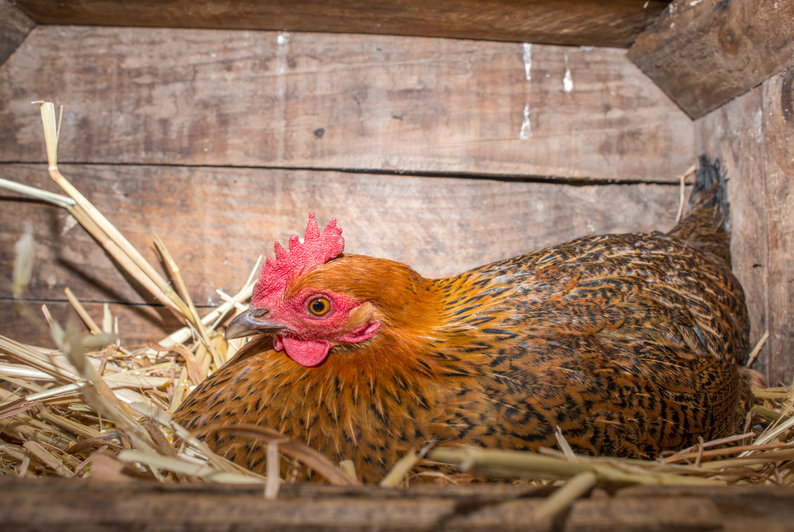
If you keep a variety of chickens in your flock, chances are you have at least one hen that likes to go broody. “Going broody” is when a hen decides she would like to hatch some of her eggs and sits on them for an extended period of time, allowing her body temperature to increase and often consuming less food and water than she would normally. For those who want their girls to hatch some fertilized eggs, this is just fine. You’ll need to make sure they have easy access to food and water, usually by placing a small waterer and feeder within very close proximity to their nesting box.
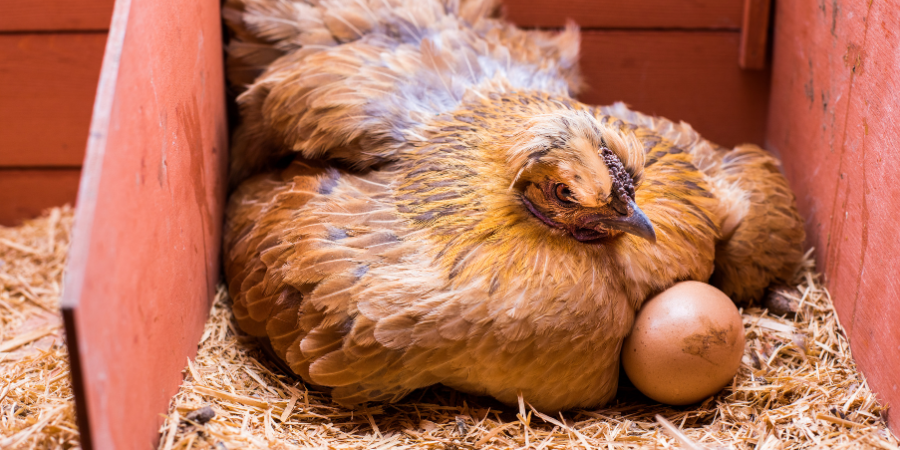
But, for people who want eggs only for consumption, a broody hen can be a bit of a pain. For one thing, you want to make sure your hens get the food and water they need, especially during hot summers. Breaking a hen of her broodiness will help ensure that she will eat whenever she’s hungry and drink when thirsty. Broody hens can also experience a slowdown of egg production, especially if they hoard eggs from the other hens and feel they have a full nest. I have two hens that tend to go broody and they love to adopt the eggs from the rest of my flock! One of the other concerns is that broody hens can get a little aggressive. Some hens will not only sit on a bunch of eggs, but strongly object to your trying to take them by pecking and yelling at you.
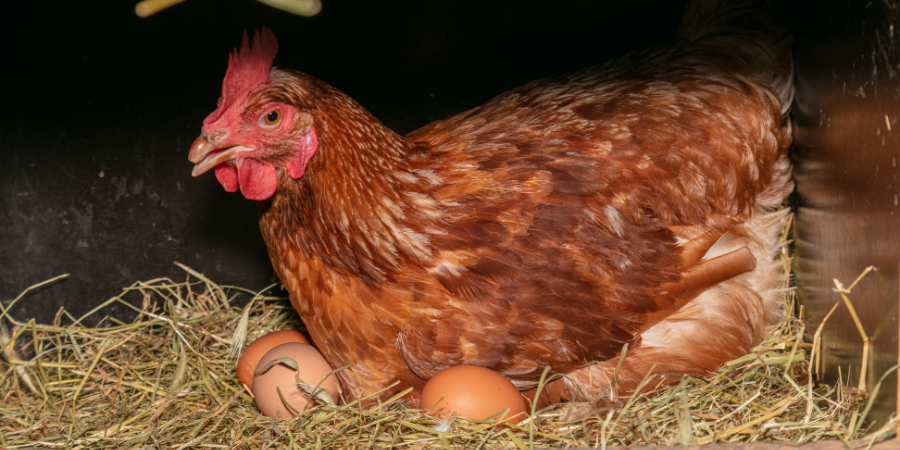
Broody Breeds
It should also be mentioned that while specific hens of any breed can be rather broody, there are some breeds that are notorious for it.
Silkies
Silkies are famous for being broody hens; in fact, many people keep silkies around to use specifically for hatching new chicks. They will hatch just about anything and are good mothers as well.
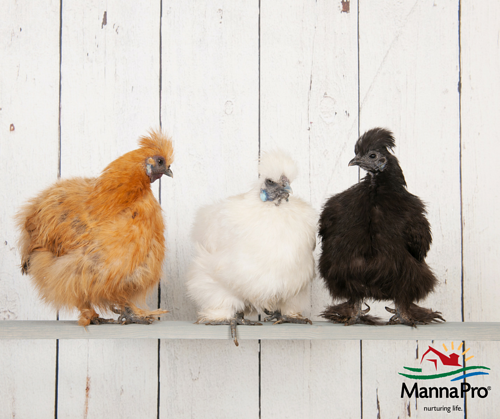
Other Broody Breeds
Other breeds that have been known to go broody at times are Australorps, Brahmas, Cochins, Faverolles, Orpingtons, Plymouth Rocks, Sussex and Wyandottes (although none of these breeds are as prone to broodiness as Silkies and will vary widely depending on the individual bird).
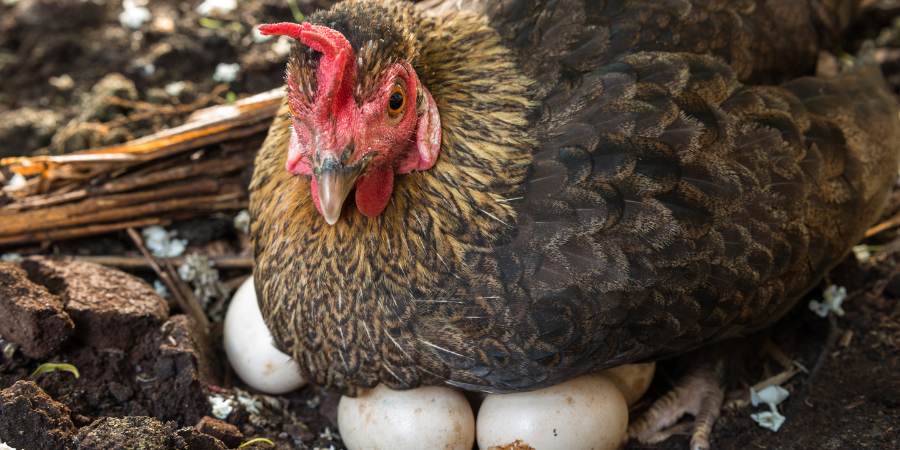
5 Simple Tips to “Break” a Broody Hen:
- Be sure to remove eggs from under the hen regularly and, if possible, pick her up and set her away from the nesting area while you collect them.
- Create a separate environment for her using a small portable coop or crate. Removing her from the nesting boxes and eggs could help get her out of the broody mindset.
- Putting her in a cage with a wire bottom, open to the air, can help cool her underside and disengage her from the broody feeling.
- If using a wire-bottom cage doesn’t work or isn’t an option, some people slip a few ice cubes under a broody hen a couple of times a day, which can result in cooling her temperature and making her “nest” undesirable.
- Similar to the ice cube method, some people have found success by simply dunking the hen’s underside in a shallow dish of cool water.
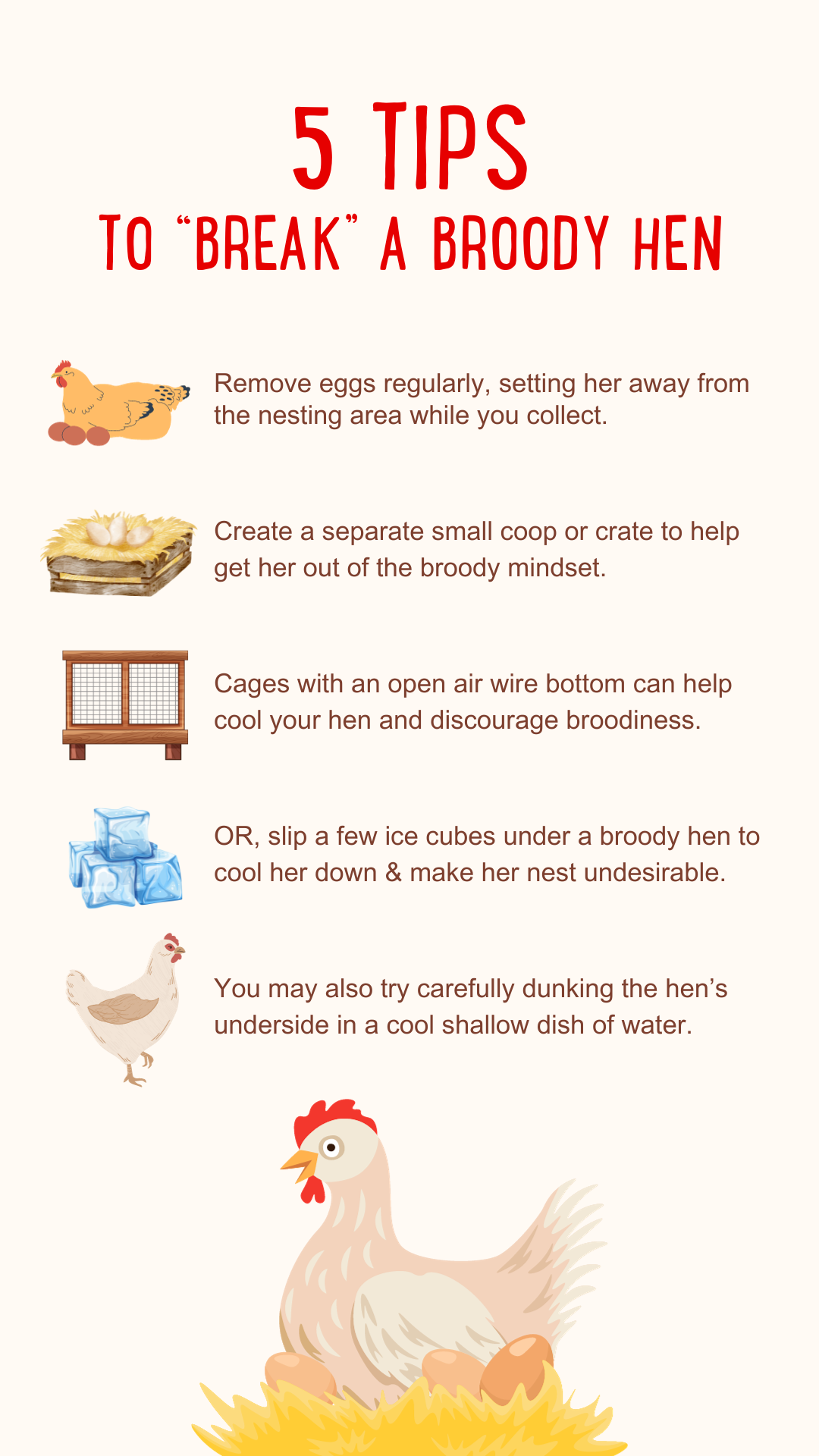
These are just a few quick tips that many chicken owners have found useful when breaking a hen of her broodiness, but there are a lot of techniques out there.
If changing your hen’s environment and cooling down her body temperature don’t work, try asking some experienced chicken owners if they have any suggestions. If YOU are an experienced owner and have developed your own methods for breaking a broody hen, please post them in the comments. We would love to hear your ideas!
How To Deal With a Broody Hen
This post contains affiliate links. For more information click here.
A broody hen, if you don’t intend them to be mothers, can be a bit of a nuisance. After all, a broody hen is a moody hen!
What does a broody hen do?
Essentially, when a hen goes broody, they are wanting to hatch their eggs themselves. This means they are ready to lay multiple eggs, and then sit on them until they hatch.

This all sounds wonderful and motherly, but the reality can be far more frustrating. Broody hens can often try and hatch unfertilized eggs – a futile act that results in an aggressive reaction every time you try and collect your breakfast!
So if you’ve noticed the following behaviour amongst your girls, you may have a broody hen on your hands:
- Scattered breast feathers in the nesting box is something that broody hens do, as they are trying to warm the environment for their incoming chicks.
- Broody hens will exhibit aggressive behaviour – no matter how complacent they were before! If you try and take her eggs, she will puff out her feathers and create an absolute ruckus.
- A broody hen will stay in her nest virtually all day, only leaving for meals and to go to the bathroom.
If you’re not planning on your hen hatching eggs anytime soon, then a broody hen will be a serial nuisance standing between you and your fresh produce.
What can I do to stop them?
If the hen isn’t sitting on or hatching fertilized eggs, then you really should take action on her behaviour – as it can actually negatively impact her health if she’s exhibiting such behaviour for longer than usual. When hens go broody, they eat dramatically less than usual, excrete less frequently and generally push their own needs aside for that of their eggs – so its critical to break their behaviour early, lest they become sick.
Here are some preventative measures to discourage the broody behaviour before it occurs:
- Collect the eggs multiple times a day so there aren’t any lying in the nesting boxes for long
- Hang curtains or drape other material over the nesting box to conceal the eggs away from the hens sight.
If it’s too late and your hen has already turned into a ball of puffed up feathers, here’s some strategies to ‘break’ her broody behaviour. Remember, the longer you leave it, the longer it will take to rectify:
- A wire cage in a well lit location – it sounds harsh, but placing your broody hen in this cage until they calm down (depending on how long they were broody depends on how long they need in the cage) is one of the most proven methods. They may need to be in there a few days, maybe even a week depending on the length of time they were broody. To find out whether their time in the cage is up, release them out and watch their behaviour. If they run back to the eggs, then they aren’t ready for freedom!
- The ‘boomerang’ method of removing a hen from the coop has had varying degrees of success, but might be worth a try in the early stages of broodiness. It involves repeatedly taking the hen out of the nest every time they sit stubbornly on their eggs. Some say this method works, others report that the hens simply sit before running back to their nest at the first opportunity.

The key is to try and catch broodiness early, as that means it can be rectified faster. Broody hens will return completely to normal after you’ve broken their behaviour, and will start being productive egg-layers again soon after!
Alongside dealing with broody hens, we chicken keepers want to do an eggcellent job when caring for our feathered friends. To prevent and identify health concerns effectively, make sure that you’ve got the knowledge you need to raise happy, healthy chooks. Did you know 67% of chicken keepers surveyed experienced a chicken health or behaviour issue in the first 12 months that they didn’t know how to handle?
But don’t worry! Our feathered friends over at Chickenpedia have created a Chicken Healthcare Course. It is a comprehensive online course that covers everything you need, including what to look for in an unhealthy chicken and how to support your egg-laying hens to optimal health. All of their courses are really well structured and filled with vital information, which is why I highly recommend them to all of my readers! From raising baby chicks to feeding to behavior, you’ll find valuable information that’ll give you the knowledge and confidence to successfully look after your chickens.
Check out Chickenpedia today. As a member, you will also get access to the ALL of their chicken courses!
Related Articles
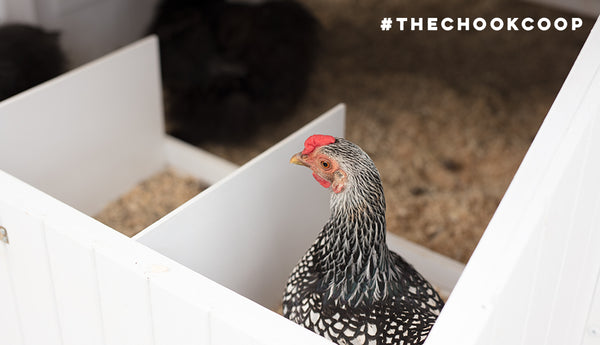
The Top 5 Natural Health Products for Chooks
by Kassandra Smith January 13, 2021
Hello chicken keepers! When it comes to the care of my chooks I prefer tried and tested natural products and methods to keep them cluckin’.
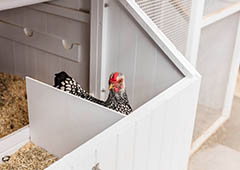
Is My Chicken Broody?
by Kassandra Smith December 01, 2018
Every once in a while, one of your chickens will get it in into her head to hatch some eggs. ‘But I don’t even have.
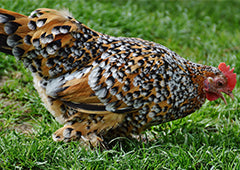
Chicken Health – Is My Chicken Sick?
by Kassandra Smith January 09, 2021
Even with the most attentive chicken keeping, one of your chooks will get sick sooner or later. It is important to be able to recognise.

Everything You Need To Know About Fertile Eggs
by Kassandra Smith January 13, 2021
What are they? Technically speaking, fertile eggs are where the ‘blastodisc’ turns into a ‘blastoderm’ – the first stage of a developing embryo. In layman’s.

Different Coloured Eggs and the Breeds That Lay Them
by Kassandra Smith January 09, 2021
It’s a very common practice among backyard chicken keepers to keep LOTS of egg-exquisitely different breeds! Why? Chicken keeping is quite addictive and once bitten.

The 4 Essential Tips for Keeping a Rooster in your Urban Backyard
by Kassandra Smith January 09, 2021
Roosters are a contentious issue among backyard chicken keepers. On the one hand, these charming chaps can be a huge benefit in keeping your flock.

Top 5 Treats for Chickens
by Kassandra Smith January 17, 2022
To keep chickens happy, healthy and laying bounties of delicious eggs, they need to be fed a varied diet rich in protein and calcium- most.

Poultry Nesting Boxes – The Facts
by Kassandra Smith January 13, 2021
It’s morning! Time to peek inside those poultry nesting boxes and gather all the egg-ceptionally fresh eggs! This is truly the most egg-citing part of.

Do I Need a Rooster in My Backyard Flock?
by Kassandra Smith January 12, 2021
Plain and simple, the answer is no! Hens are one of the most captivating creatures on the face of the earth. They are beautiful, intelligent.

Incubation: How To Tell If An Egg Is Fertile Or Infertile
by Kassandra Smith February 05, 2021
Not sure whether your eggs are fertile? There are a couple of different methods you can use to see if there’s potential life inside an.

Wyandottes: A Comprehensive Guide
by Kassandra Smith July 20, 2022
Wyandottes are splendid birds that come in an endless variety of colours. This American bred bird is incredibly popular all over the world – not.

Gender Bender: When Your Hen Thinks She’s A He!
by Kassandra Smith January 10, 2021
You have yourself a lovely flock of girls- they get along harmoniously, you collect their delicious fresh produce each and every morning- everything is going.